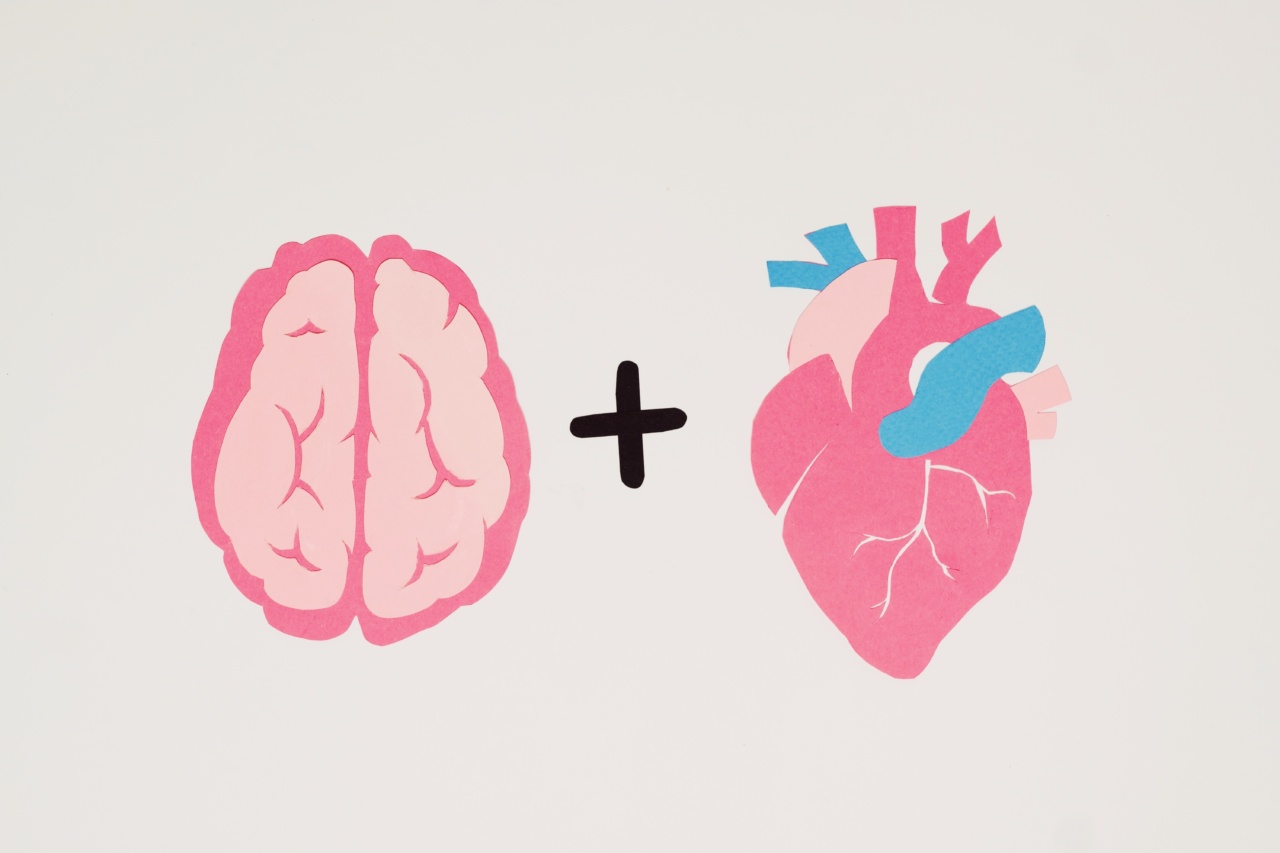The connection between the heart and the brain is a fascinating and intricate one. While these two vital organs may seem unrelated at first glance, they are intricately linked, constantly communicating and influencing each other’s function.
Over the years, researchers have made significant strides in understanding this connection and its implications for our overall health and well-being. In this article, we will decode the intricate link between heart and brain function, shedding light on its significance and exploring potential avenues for improving both heart and brain health.
A Tale of Two Command Centers: Heart and Brain
At the core of our body’s functioning, we have two crucial command centers: the heart and the brain.
The brain, often referred to as the control center of the body, is responsible for processing information, making decisions, and coordinating bodily functions. On the other hand, the heart, a powerful muscular organ, plays a vital role in pumping oxygen-rich blood throughout the body, ensuring the delivery of essential nutrients and oxygen to various organs and tissues.
While these organs perform distinct functions, they rely heavily on each other to carry out their duties effectively.
This interdependent relationship is facilitated through various mechanisms that enable communication and coordination between the heart and the brain.
Communication Pathways: Unraveling the Connection
The connection between the heart and the brain is primarily established through two major communication pathways: the nervous system and the circulatory system.
1. The Nervous System
The nervous system acts as a powerful communication network, relaying messages between the brain and various parts of the body, including the heart. It consists of two main components:.
Central Nervous System (CNS)
The central nervous system comprises the brain and spinal cord. Within the central nervous system, the brain sends signals to the heart through the autonomic nervous system (ANS), a division of the peripheral nervous system.
Peripheral Nervous System (PNS)
The peripheral nervous system consists of nerves that branch out from the spinal cord and connect the brain to different parts of the body, including the heart.
The ANS, a vital component of the peripheral nervous system, controls involuntary bodily functions such as heart rate, blood pressure, and digestion.
The brain constantly communicates with the heart through the autonomic nervous system, regulating heart rate and adapting to changes in the external environment.
This close interaction allows the brain to influence the heart’s activity and respond to various stimuli effectively.
2. The Circulatory System
The circulatory system, consisting of the heart, blood vessels, and blood, transports oxygen, nutrients, hormones, and other essential substances throughout the body.
This intricate network ensures that all organs, including the brain, receive the necessary oxygen and nutrients for optimal function.
Interestingly, blood vessels throughout the body, including those in the brain, are lined with nerve endings called baroreceptors.
Baroreceptors detect changes in blood pressure and transmit this information to the brain, which responds by adjusting heart rate and blood vessel constriction or dilation. This feedback loop helps maintain blood pressure within a narrow range, ensuring a steady supply of blood to the brain.
Heart and Brain Condition: Impact on One Another
1. Effects of Heart Disorders on Brain
Heart disorders can have a significant impact on brain health. Reduced blood flow to the brain caused by conditions such as heart disease, coronary artery disease, or stroke can lead to cognitive impairment, memory loss, and even dementia.
When the heart fails to pump blood efficiently, the brain may not receive an adequate supply of oxygen and nutrients, causing cells to die.
Additionally, blood clots or plaques formed in the heart or blood vessels can break loose and travel to the brain, resulting in a stroke.
2. Impact of Brain Health on Heart Function
The brain plays a crucial role in regulating heart function. Emotional stress, anxiety, and depression, all of which originate in the brain, can affect heart health.
During stressful situations, the brain releases stress hormones that can increase heart rate, blood pressure, and the risk of cardiovascular disease.
Furthermore, studies have shown that individuals with certain brain disorders, such as depression or post-traumatic stress disorder (PTSD), have a higher risk of developing heart disease.
The exact mechanisms behind this connection are still being studied, but it emphasizes the importance of prioritizing brain health for maintaining a healthy heart.
Strategies for Optimizing Heart and Brain Health
Given the profound interplay between the heart and the brain, adopting strategies to improve the health of both organs can have considerable benefits for overall well-being.
Here are some lifestyle choices and practices that support heart and brain health:.
1. Regular Exercise
Engaging in regular exercise promotes better cardiovascular health, helps control weight, and reduces the risk of heart disease. Furthermore, physical activity has been shown to enhance cognitive function, memory, and mental well-being.
Aim for at least 150 minutes of moderate-intensity aerobic exercise per week to reap the benefits for both heart and brain health.
2. Balanced Diet
Eating a nutritious and balanced diet rich in fruits, vegetables, whole grains, lean proteins, and healthy fats can contribute to a healthy heart and brain.
Incorporate foods high in omega-3 fatty acids, such as fatty fish, walnuts, and flaxseeds, as these have been associated with a reduced risk of heart disease and improved brain health.
3. Quality Sleep
Getting enough quality sleep is essential for maintaining optimal heart and brain health. During sleep, the brain consolidates memories, processes emotions, and restores various bodily functions.
Aim for 7-9 hours of uninterrupted sleep each night to support overall well-being.
4. Stress Management
Chronic stress can have a detrimental impact on both the heart and the brain.
Developing effective stress management techniques, such as practicing mindfulness, deep breathing exercises, or engaging in hobbies, can help reduce stress levels and promote better heart and brain health.
5. Social Connections
Building and nurturing social connections contribute to both heart and brain health. Positive social interactions and strong social support have been linked to a reduced risk of heart disease, improved mental health, and better cognitive function.
Prioritize spending time with loved ones and engaging in activities that foster social connections.
Conclusion: The Symbiotic Relationship between Heart and Brain
The intricate link between heart and brain function is undeniable. These two powerful organs rely on constant communication and coordination to maintain a delicate balance within the body.
By understanding and acknowledging this interdependence, we can make informed choices that optimize the health of both our hearts and brains. Embracing a holistic approach to well-being, encompassing regular exercise, a nutritious diet, quality sleep, stress management, and social connections, can go a long way in promoting the harmony between these vital organs.





























